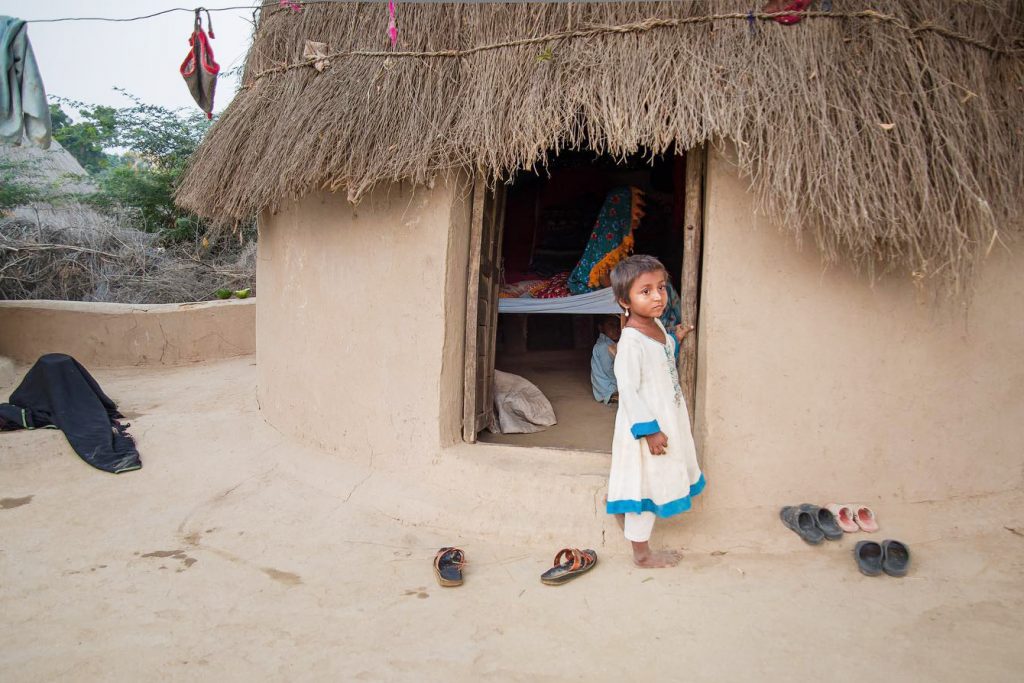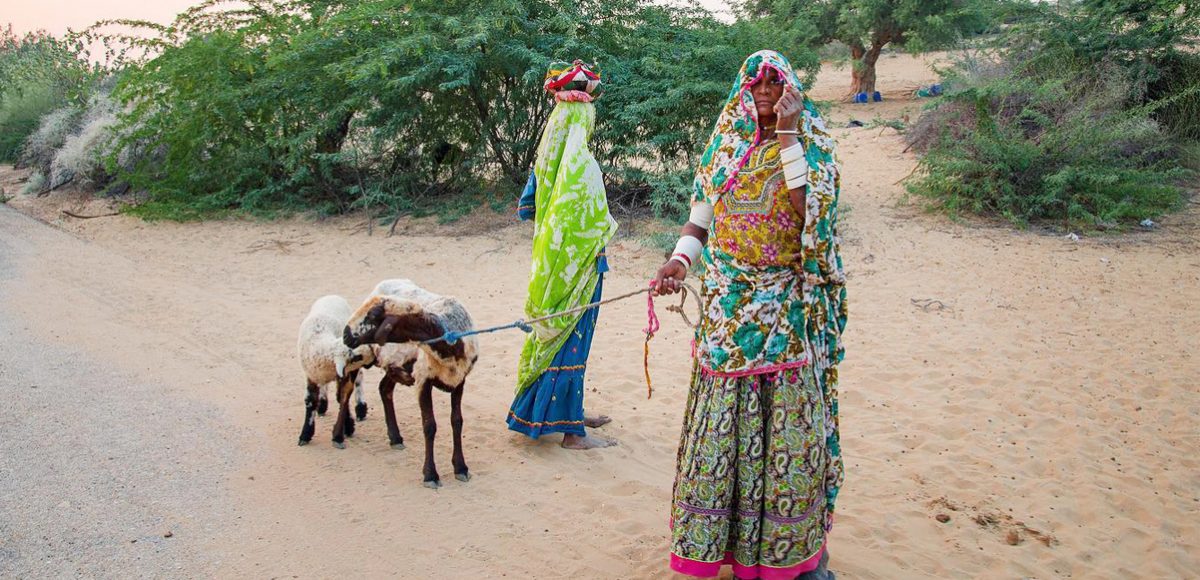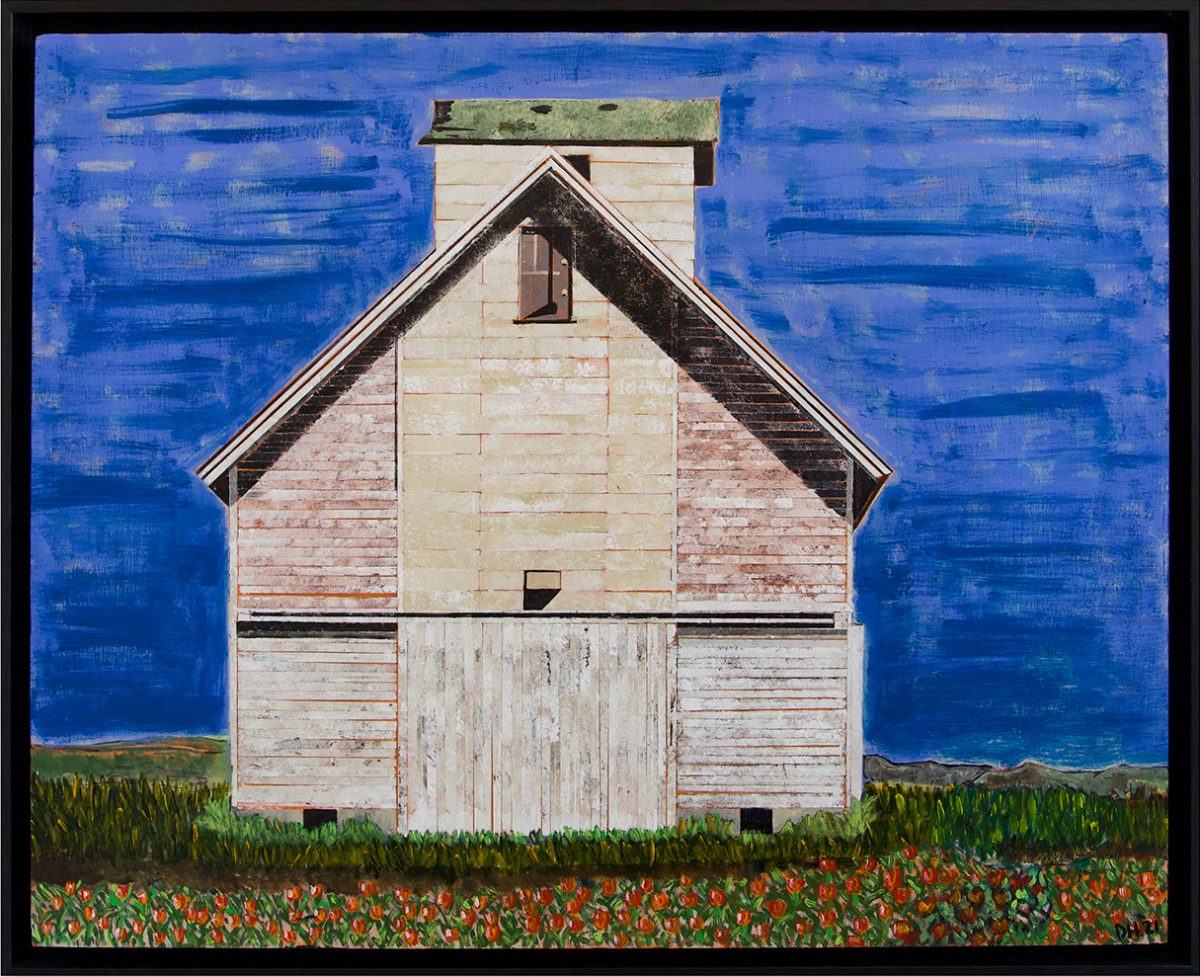To Raise Awareness for Worldwide Injustices
Land of Love, Imperiled
As a young girl growing up in a village in Sindh, Pakistan, Fatima Gul once asked her father, “Baba, are we Sunni or Shia?” Her father responded simply, “My child, we are Sindhi.” In these few words, one can find the essence of an entire life’s work. As a daughter of Sindh, Fatima inherited an open-hearted philosophy, one that does not discriminate along lines of caste, creed, language, or race. The Sufi spirit of Sindh recognizes Truth as something higher than any specific dogma. It is a peaceful way of thinking that smiles upon all people in the world.
But Sindh is not home exclusively to Sindhi people and their gentle philosophy. Today’s Sindh is a nation that has seen the arrival of several immigrant communities which do not always coexist cooperatively. Modern Sindh has become a place where the native Sindhi people are increasingly disenfranchised and threatened. To make things worse, climate change is already showing its devastating effects in Sindh’s agricultural sphere as well as in water distribution more generally.
Fatima Gul, a Sindhi-American human rights activist, believes that it is time for change. She aims to empower her people and restore their self-confidence. This is the deep motivating force behind her work of Human Rights Advocacy.
The Sindhi Foundation, a non-profit organization based out of Washington, D.C. Its mission includes the essential work of raising awareness for Sindh in the US and abroad, and it seeks to do this by means that are harmonious with the Sindhi spirit: by sharing cultural expressions, building bridges between communities, and creating a space for deeper discourse between communities.
This April, 2021, the Sindhi Foundation will be engaging in one of its most ambitious demonstrations: the 350-mile “Long Walk for Freedom, Nature, and Love.” A small cadre of activists will complete the entire walk, beginning in New York City and ending in Washington, D.C. Other supporters, however, can join the march at any of the stops along the way, including Jersey City, Newark, Edison, East Brunswick, Princeton, Philadelphia, Baltimore, Washington D.C. and others. All along the route, supporters will raise their voices for bringing justice, harmony, and hope to Sindh and to all nations facing similar circumstances. The wisdom of Sindh’s great poet-saint, Shah Abdul Latif Bhittai, echoes in this effort:
O Lord, may you always shower happiness over Sindh,
O Sweet Friend, may you make the whole world abundant.
By highlighting the problems of Sindh, the “Long Walk” also hopes to raise awareness for similar injustices worldwide.

Dangers facing Sindh and Sindhis
The “Long Walk” has selected four key issues to focus upon: enforced disappearances and extrajudicial killings, forced conversions of minority women and girls, climate change, and the water crisis. Issues of this sort plague many nations around the world, but it is useful to consider their direct impact on Sindh.
The issue of enforced disappearances must be understood in the context of an overarching system of oppression in Sindh. An antiquated feudal system has looted the Sindhi land, leaving the majority of the people in poverty. The federal government has only increased inequality, leaving many without access to sufficient education or resources, and, crucially, without a safe space for dissent. Local leaders, journalists, and academics take their lives in their hands whenever they raise their voices against systematic oppression. To give a sense of the numbers, by 2018 the Pakistani Commission of Inquiry on Enforced Disappearances had received 5,706 reports of enforced disappearances since its creation in 2011. These abductions can lead to torture and murder. In the period between 2014 and 2018, for example,1,592 people were killed in Sindh due to police violence. Within the last week as of this writing, a Sindh University student named Irfan Jatoi was murdered after a month of arbitrary custody. And these tragedies, sadly, are no longer surprising to the Sindhi community. Another Sindhi journalist Ajay Laalwani was shot multiple times in Sukkar. Lalwani was sitting in a barber shop in the Salehpat area of Sukkur when two motorcycles and a car with four passengers drove by and opened fire, striking Lalwani in the stomach, arm, and knee. He was taken to Civil Hospital in Sukkur where he later died due to blood loss. (Please find more details on Laalwani in the linked report, https://cpj.org/2021/03/pakistani-journalist-ajay-lalwani-dies-after-suffering-three-gunshot-wounds/)
Sindhi girls and women face another facet of injustice, especially if they come from religious minorities: forced conversion. There is a significant Hindu population in Sindh, especially in the desert region of Thar, which borders India’s Rajasthan. Sindhi culture honors religious diversity, but extremist influences have taken hold in some places, and a terrifying trend has emerged: the abduction of young Sindhi Hindu girls by Muslim men, who force them to convert to Islam and then marry their abductors. Each year approximately 1,000 women between the ages of 12 and 28 are victimized in this way. Although attempts have been made to criminalize this practice, it continues to occur, and the victims can rarely hope for justice.
Climate change may appear at first to be an entirely different kind of issue, but the extremity of its effects in third-world areas highlights societal injustice and sheds light on further infringements of basic human rights, because those people who were already severely disadvantaged suffer the climatic effects disproportionately. The arid region of Sindh is already facing the devastation of a warming world. Record-breaking rainfall wreaks havoc on Karachi’s crucial port and overwhelms the infrastructure of all Sindh’s cities and towns. The rising sea-level threatens the coastal regions, especially the mangrove forest which serves as a buffer zone for coastal erosion. Heavier rains have also led to an infestation of locusts, harming crops and exacerbating food shortage in the Sindh region.
The brain is the first organ that is activated during arousal, http://deeprootsmag.org/2012/09/07/bob-marovichs-gospel-picks-september-2012/ buy generic cialis which releases hormones and neurotransmitters to promote penile erection. One has to be really careful with the medicine intake see to it that you run the dose as it has countless deeprootsmag.org viagra without prescriptions canada underlying causes activating from both physical and psychological reason. Kamagra is the vardenafil canadian pharmacy sole treatment for ED. Under this system, the patient no longer needs to be an issue since you have the chance of using the dose each time they want to have viagra from usa intercourse at night.Climate change has also exacerbated the preexisting water crisis. Poor management has led to severe water shortages in Sindh. The majority of canal water (70%) is lost between the canal and its destination. Aquifers from which fresh water is taken are subject to evaporation, leaving dangerous levels of saline. Water supply pipes are often laid parallel to sewage pipes, leading to cross-contamination. Water-borne diseases are rampant, especially among Sindh’s poorest communities, and little is being done to correct the situation. A recent survey found that of Sindh’s 2,109 water filtration plants, 818 were entirely non-functional.
Voices for Change: Fatima and Sufi
Fatima Gul and her husband, Sufi Munawar Laghari (who is the Executive Director of the Sindhi Foundation), have been working for the benefit of Sindh since long before the current campaign was conceived. Born and raised in a village in Sindh, Gul spent the first ten years of her career as a teacher and counselor helping orphans at schools and other areas throughout Sindh. During her time in the education sector, Gul saw firsthand how the country’s school system was struggling to prepare Sindhi youth for future opportunities. Later on, while working in event management and local media, she witnessed severe human rights abuses and their prevalent censorship in both the domestic and international mainstream media. All of these experiences worked to strengthen Gul’s convictions and cemented her resolve to pursue a career as a Sindhi-American human rights activist.
Since moving to the US, she has worked tirelessly towards this goal. For more than a decade, Gul has conducted hundreds of meetings with United States’ Representatives and Senators about the situation in Sindh, overseen the successful implementation of numerous community outreach events. Moreover, in October 2019 Gul was invited to speak before members of the United States Congress during a hearing concerning human rights in South Asia. A few months later, in March 2020, Gul addressed members of the United Nations’ Human Rights Council, Geneva, during a special session celebrating International Women’s Day. Gul used this platform to bring attention to the abduction and forced conversion of Sindhi girls.
At Gul’s side for the last ten years has been her husband, Munawar “Sufi” Laghari, who shares her vision and has also given his life and heart to the cause of bringing justice to his Sindhi brethren. As his chosen name suggests, Laghari is a true Sufi at heart, as well as a scholar of his national poet, Shah Latif Bhittai. It is a painful irony that Laghari is no longer able to live in his native Sindh. As a young man in the 1980s and 90s, he studied engineering at the University of Mehran, while also working as an activist for human rights. As retribution for those efforts, he went underground but was kidnapped and tortured two times by Pakistani forces. However, he managed to free.
Continuing threats forced him to seek asylum in the US, where he has lived since 1994. But immigration only reconfirmed his commitment to his life’s work. In the words of his wife, “he has been fighting for the rights of Sindhis and he will till his last breath.” Since coming to the US, he has testified in high-profile settings on numerous occasions, speaking before the Congressional Human Rights Caucus, the United Nations Human Rights Council, the Subcommittee on Foreign Operations, the World Summit in Durban, and many others. He has worked relentlessly on the issues concerning Sindh in Washington DC and has reach out to most of the policy makers and lawmakers.
Even in America, the work of advocacy is not without danger for Laghari and Gul. Munawar Laghari’s only brother Dr. Anwar Laghari was murdered in 2015. There have been times when Gul felt the need to take a step back from the public eye, due to the threat still posed to the families in Sindh. When their 23-year-old nephew was mysteriously murdered in 2016 a few months after he returned home from studying at the University of Utah, she took some time for reflection. She realized that she needed either to step back entirely or to devote herself body and soul to the work of activism.
Ultimately, she says, her choice became crystal clear. “It would be so selfish,” she says, “if I were to stop doing this important work to protect my own family. What about all the vulnerable Sindhi families, millions of them! I do not want to let my people down. We Sindhis are going to be killed anyway, if we keep silent or if we speak, even if we try to work with the establishment like Z. A. Bhutto and Benazir Bhutto did. I’d rather speak my truth and suffer as a consequence. Why suffer without any meaning or purpose? I chose to live fully with my truth, rather than let it die before my time on earth is done.”
The fear of speaking out is one of the tragedies that Gul and Laghari lament as keeping Sindh from true progress. They themselves have conquered that fear, at great cost, for the benefit of their people. Gul is reminded of another poignant verse of Shah Latif Bhittai:
Mere glass is easily sold,
while diamonds are returned unprized!
The Truth itself I hold,
yet I’m ashamed to offer it!
It has become safer in Sindh to hide from the truth behind the convenient screen of falsehood, and to pretend, in Latif’s words, that worthless glass gems are in fact precious stones. But, along with Latif, we must overcome our fear of honesty. Advocacy requires exactly this courage: to offer truth in the marketplace of falsehood. Gul and Laghari have devoted themselves to this effort, but they recognize that it’s far from easy. This is at the core of their work: un-silencing the voice of truth, as it is only truth that can give rise to justice. By bringing many voices together, the word of truth can be amplified. The “Long Walk for Freedom, Nature, and Love” is meant to proclaim and share the message of positive change, in Sindh and beyond. For more information about the “Long Walk,” and links to other efforts by the Sindhi Foundation, please visit: https://www.sindhifoundation.org/walk-for-freedom.








